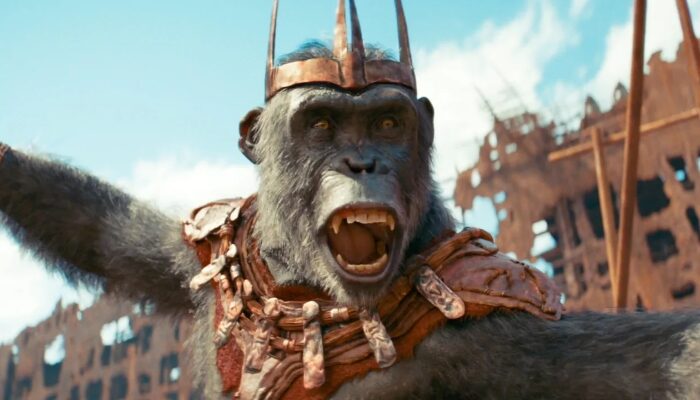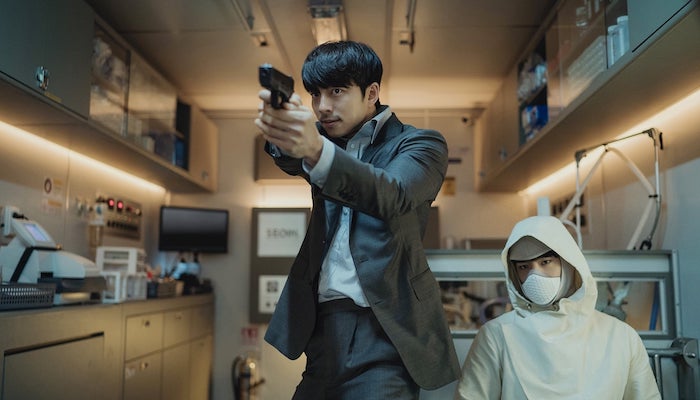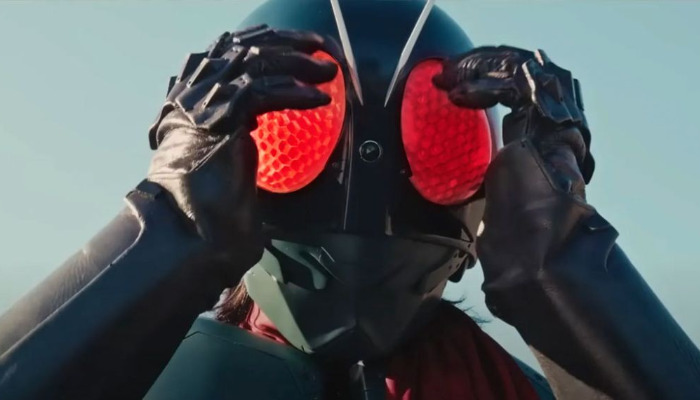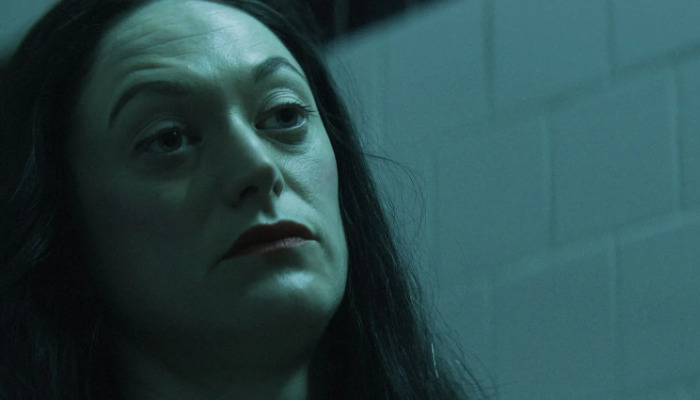Film Review: SEOBOK: A Cool and Calculated Cloning Thriller With a Warmly Philosophical Heart [Fantasia 2021]
Seobok Review
Seobok (2021) Film Review from the 25th Annual Fantasia International Film Festival, a movie written and directed by Lee Yong-ju, starring Gong Yoo, Park Bo-Gum, Jang Young-nam, Jo Woo-jin, Park Byung-eun, Daniel Joey Albright, Kwang-hoon Na, and Maurice Turner Jr.
“Elevated” genre is such a ridiculous concept because it suggests that anything other than drama is incapable of tackling heavy themes. Through metaphor and abstraction, genre-heavy storytelling can help us see what it means to be human in a strikingly different (and arguably an even clearer) light. Drama does not give storytellers grandiosity by default, despite what the gatekeepers might tell you.
All that’s to say that it’s still a pleasant surprise when a big-budget blockbuster you weren’t expecting to have much to say is in fact riddled with intellectual musings. Such is the case with Lee Yong-ju’s cloning sci-fi thriller Seobok, a film that’s as much about what it means to live as it is about seeing a kid crush people into the ground with his mind.
Min Ki-hun (Gong Yoo), a former South Korean intelligence agent, is suffering from a brain tumor that causes him splitting headaches, insomnia, and occasional blackouts. With doctors giving him only months to live, his former supervisor, a security chief and entrepreneur named Ahn (Jo Woo-jin), offers Ki-hun the opportunity to be the first patient in the trial run of an experimental exposure procedure that might help cure his cancer if he completes one final mission first.
The mission is Seobok (Park Bo-Gum), the first genetically-modified human clone. Created and overseen by Dr. Im Se-Eun (Jang Young-nam) and her assistant (Park Byung-eun) in the SEOIN research lab, Seobok generates a particularly potent concoction of stem cells within him, which essentially allows him to live forever – and which SEOIN hopes to apply for use in future medical procedures. After a suspected terrorist attack killed one of the lead scientists assigned to Seobok’s project, SEOIN and Ahn thought it best to relocate Seobok to a safe house lest he (and the scientific discovery he symbolizes) fall into the wrong hands. Ki-hun, though flabbergasted at Seobok’s mere existence, agrees to offer security during the transfer if it means life-saving healthcare.
While en route to the safe house SEOIN’s convoy is attacked by a caravan of American mercenaries, and Ki-hun and Seobok escape with barely their lives. The odd couple must continue to the safe house on their own while keeping a low profile from whoever’s after them, but that proves difficult as Seobok is reluctant to keep acting as SEOIN’s property until he fully understands what else life has to offer. Ki-hun is forced to reckon with Seobok’s journey of self-discovery, which helps shape his own perception of mortality in the process.
Seobok may start out by simply hitting all the typical sci-fi-action-thriller beats in a competent manner, but Lee slowly peels back the outer layers to reveal its much headier core. Sure, there are fantastic action sequences with frugal visual effects (not to mention some spectacular chase scenes and vehicular set-pieces that play like they’re straight out of a Michael Mann flick), but the film’s true center is the philosophical quandary of Seobok’s reality – and, concurrently, his experience of it. Lee is less interested in using the film to showcase Seobok’s psychokinetic powers than he is in using it as a catalyst to break down some basic tenets of humanity, and the result is an incredibly somber tour-de-force.
As a genetically-engineered clone of someone who was once alive, Seobok must wrestle with the fact that, despite his interior identity, his exterior one is not an original. As a result he can’t fulfill his deepest desire to “become something” in the modern-day sense of that term – he’s living merely as an echo of a previous being. What’s more, SEOIN developed him with a predetermined goal in mind – to serve as a potential stem-cell generator for future medical trials – and Seobok choosing to not participate in this would be allowing other people (like the ailing Ki-hun) to succumb to death. Seobok realizes this contradiction early on yet he doesn’t understand it, and his childlike desire to do so fuels the film’s strong introspective undercurrent.
The decision to frame Seobok as a rapidly-growing child (who Park portrays with both the wide-eyed wonder of a schoolkid and the cool stubbornness of a teenager) puts his broad questions about human existence and mortality into a different light than if he were a child asking these same things. Lee does allow that dynamic to play out, too, with Ki-hun being relegated to the dad/older brother role of having to offer up some pithy and equally-broad answer just to get him to be quiet. However, this set-up in turn forces Ki-hun to re-evaluate all these facts of life that he’s taken for granted, and to ask himself why he wants his illness cured if he regrets his life with such veracity (and Gong portrays this internal conflict with an astute sense of both frustration and melancholy).
This framing allows these questions to take on more grandeur than they otherwise would, yet it also keeps them from falling victim to a very particular brand of pretentiousness. Through this construct, Lee forces us to reckon with how we’d answer Seobok’s questions all on our own, as well as figure out the limits to our own moralities and what it means to be alive.
It may be tempting to read these themes with individualistic and/or right-leaning undertones (Seobok’s destiny to serve the collective good inhibiting his own free will; science infringing on the spiritual essence of existence; yadda yadda, so on and so forth), but such readings undermine the importance of free will at the center of Lee’s script. Seobok and Ki-hun’s true power – and thus, their sense of moral righteousness – lies with them reconciling their past transgressions, and their conscious decisions to not take the easy way out of their respective conflicts. Facing their struggles head-on is for the benefit of all, rather than just themselves.
Similarly, right-leaning readings willfully ignore how individualism bastardizes collective survival, and how greed – be it SEOIN’s refusal to take parental responsibility for the life they created, in turn fueled by individual people’s own fear of death – can poison life-saving efforts. Seobok’s existence as a genetically-modified clone isn’t what’s inhibiting his spiritual and moral growth … selfish individuals and venture capital are. If anything, his individual sense of spirituality and him coming to understand faith in the unknown makes him more attuned to the human experience, and thus makes him all the more willing to take part in their shared struggle.
There’s an obvious critique of Western chauvinism in here, as well, framed through the United States’ unwillingness to award prominent scientific progress to anyone else, as well as their fear of ceding militaristic superiority by even a single inch. In that way, this is South Korea’s Akira response, and much better than Hollywood’s own response, at that.
A lesser filmmaker would have used Seobok as shallow genre fare to tease out baseline technophobia, bombastic fight sequences, and shallow plots about destructive vengeance. Thankfully Lee is not that, and he uses his film to inquire about what makes us humans tick while confronting our own deep-seeded fears and regrets over our mere existence. Seobok may not offer us any concrete answers as to how exactly to overcome imperialism, capitalistic greed, or even the mere thorniness of life itself, but it does offer us some tragic sympathy for that journey we must all take. It’s coolly calculated, but with a warm, human heart.
Rating: 8/10
Leave your thoughts on this Seobok review and the film below in the comments section. Readers seeking to support this type of content can visit our Patreon Page and become one of FilmBook’s patrons. Readers seeking more Fantasia International Film Festival news can visit our Fantasia International Film Festival Page, our Film Festival Page, and our Film Festival Facebook Page. Readers seeking more film reviews can visit our Movie Review Page, our Movie Review Twitter Page, and our Movie Review Facebook Page. Want up-to-the-minute notifications? FilmBook staff members publish articles by Email, Twitter, Facebook, Instagram, Tumblr, Pinterest, Reddit, and Flipboard.
Related Articles
FilmBook's Newsletter
Subscribe to FilmBook’s Daily Newsletter for the latest news!













